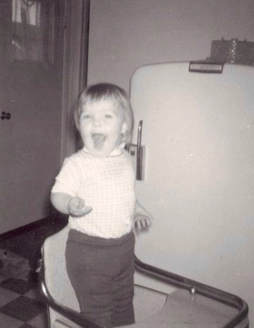|
One day at the Regional Support Centre, a student having a rough morning was peppering his communication with more than the usual amount of colourful language. After several gentle reminders, the teaching assistant who was working with him, put this note on his report:
Junior can’t seem to stop the damn swearing. That was Terry. She brought so much laughter to our classroom. She loved to laugh. I’m sitting by the fire this Halloween morning thinking of Terry. Her name is written in my daybook today because it is her birthday. But this year, I will mark her birthday with a heavy heart because Terry died on October 14. I knew Terry through work, so, it’s interesting that the word that comes to mind when I think of her is love. Our classroom welcomed students with challenges in their lives that made it difficult for them to manage their emotions and therefore, their behavior. Sometimes, our students had burned all their bridges and were on their last chance for being in school. These were often angry children who lashed out from their pain. Most of the time they didn’t know what they needed or what they wanted. But they quickly learned that what they would get from Terry, also known as Captain Marshmallow, was love. In my memory, I see those kids, mostly boys, leaned up against her, listening to her read. I see them giggling with her. I see them doing all sorts of things to have an excuse to be near her when they were hurting. I see them letting her wrap them up in a hug when they wouldn’t let anyone else touch them. Terry gave them love. When they were obnoxious and rude and had all sorts of sharp edges jutting out everywhere, Captain Marshmallow just pushed on in and loved them up however she could. I had a great conversation once with an adult who had been an at-risk youth. She told me that while she didn’t remember names, she remembered many faces of the helping adults who had been part of her tumultuous teen years. She remembered how that felt. Kids may not remember what we say, or what we do, but they will remember how we make them feel. (Maya Angelou) And so, I think of all those former RSC students out there, living their lives. If they saw a picture of Terry today, they might not even remember how they knew her, but I think they would feel a rush of warmth and comfort. Like coming in from the cold to a warm fire and the aroma of baking bread. All those hearts carry the ‘Mark of the Marshmallow’! And not just the kids, Terry. Thank you for everything. Peace to you, my friend.
2 Comments
 In my reading this morning, a beautiful line from Richard Wagamese jumped out and grabbed me: ...parts of us exist in exile, and completeness is journeying to bring them home. * I sat with that line for a long while, staring into the fire, thinking about the parts of me that exist in exile. Maybe there is no loss, only exile, and if I'm willing to do the work, I can have every part of me back home again. I have a picture of my little self, standing up in my high chair looking directly into the camera, eyes shining, mouth wide open in a laugh. It's all right there: my curiosity, my trust, my open heart, my joy, my optimism. It's not that I have lost parts of myself to trauma as so many children have. But a natural exile of innocence occurs as we grow up and experience life's inherent challenges and disappointments. Add to that the death of a parent at an early age, loss of family and community at a crucial time in my life, rejection by people I needed most when I came out . . . every one of these little bumps caused me to take a piece of my heart, wrap it protectively, and jettison it away for safekeeping. I focused on survival, healing, and figuring out who I was. And slowly, over the years, I have embarked on journeys to find those exiled pieces of my heart and bring them home. Sometimes these journeys are unexpected and easy - a new friendship that brings back some little part of me, or a creative process that opens a locked door. Sometimes these journeys are difficult - a challenging relationship that triggers me and I don't know why. Figuring out the why might hurt a little, and will likely require some change on my part, but there is a good likelihood that the process will bring another piece of my heart home. When I worked at the Regional Support Centre, I became accustomed to running self-diagnostics on a daily basis. When I accompanied students on their journeys of self-understanding, I was quietly applying every lesson to my own life. Every day, I put my soul and psyche up on the hoist; regular maintenance was a built-in component of my counsellor/teacher role. As an added bonus, my bosses were excellent diagnosticians and I often availed myself of their expertise. They would help me find the origin of the problem, but everyone was responsible for their own repairs. (Every exiled part of me that I recovered while working at the RSC, I took home to my relationship. In fact, in my case, the RSC might well have stood for Relationship Service Centre). This morning, as I was pondering all of this, my dog lay beside me, snoring gently. He used to wake himself up with his own snoring, but now, he is adjusting to life without his hearing. He does everything he did before, but with instinctive adaptations. Is he even conscious of the loss? Probably not. So too, I have adapted to living my life without some of my original parts - the parts so clearly evident in the picture of the happy toddler in front of me. We all adapt. We function very nicely, thank you very much. But are we complete? Today, I renew my commitment to keep journeying, to keep searching, to bring it all back home. Or as much as possible. Watch for me: I'll be the one standing on my chair looking directly into the camera, eyes shining, mouth wide open in a laugh. *Richard Wagamese, Embers, One Ojibway's Meditations. Douglas & McIntyre, 2016. (p.95) |
Check out Monica's
former blog. Archives
February 2024
|
